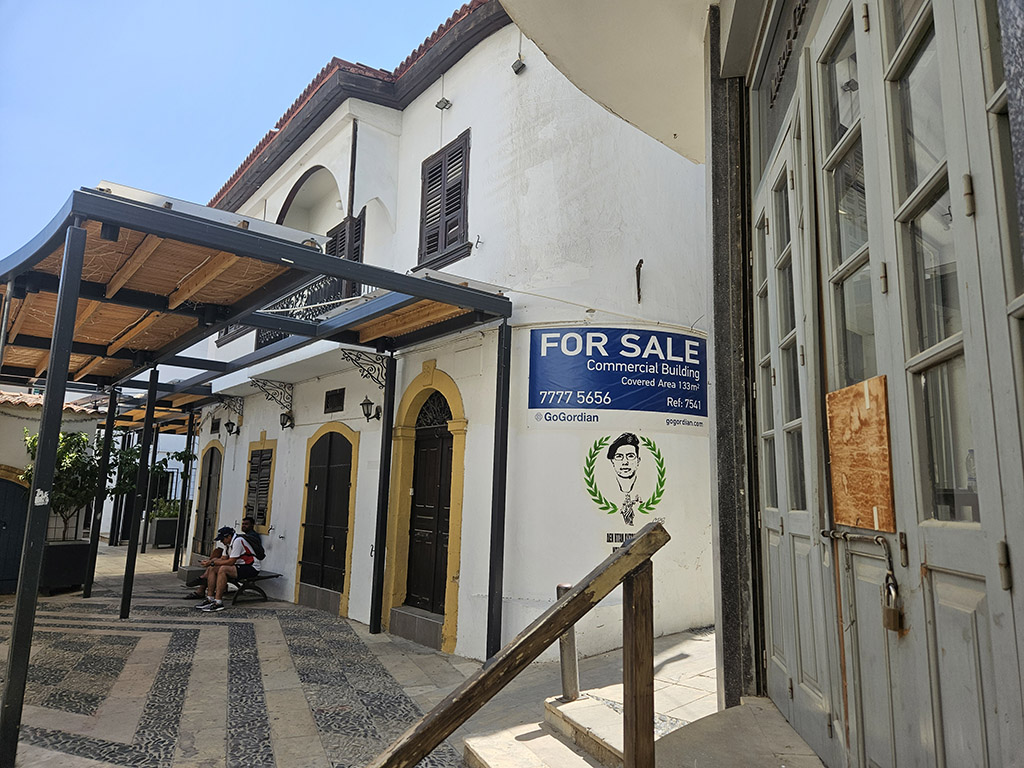The discussion took place during the article-by-article review of the harmonising bill that establishes a national framework for screening foreign direct investments.
The bill aims to bring Cyprus in line with European practices, introducing stricter controls on investments of strategic importance while at the same time ensuring that the country remains a competitive destination for credible investment.
Particular debate centred on whether individuals holding dual nationality, that of an EU member state and a third country, should be allowed to proceed with investments in the EU.
The warning comes ahead of preparations for the 2026 Budget and the Medium-Term Fiscal Framework 2026-2028.
The Fiscal Council said Cyprus continues to lag in developing infrastructure, policies, and other tools to mitigate the impacts of climate change.
“Impact estimates at fiscal, macroeconomic, and social levels must be a cause for concern,” it said, adding there is also potential political risk as Cyprus is on a trajectory of failing to meet its European Union obligations.
According to figures released on Monday by Hermes Airports, this marks an increase from 1.6 million passengers during the same month in 2024.
The data also show that for the fifth month in a row, traffic across the island’s airports has exceeded the one million passenger mark.
At Larnaca airport, traffic climbed to 1.3 million passengers compared with 1.2 million in August 2024.
At Paphos airport, the figure rose to 501,100 passengers from 439,900 a year earlier.
Speaking on CyBC radio, Keravnos said he remains “preoccupied” with two major issues relating to the proposed subsea cable: no one knows how much the project will cost electricity consumers, nor when the project will become operational, translating into lower electricity prices for the public in Cyprus.
According to the minister, only estimates exist about the final cost of the GSI – some speak of €2 billion, others €2.5 billion, and others still say €3 billion.
Another issue of concern, he said, is the absence of a firm and binding timetable for the completion of the project.
The report showed that the share of electric cars increased to 4.8 per cent in January-August 2025, up from 3.3 per cent in the same period last year.
Hybrid vehicles saw an even sharper rise, climbing to 43.6 per cent from 36.8 per cent in January-August 2024.
This growth comes as the share of petrol-powered passenger cars fell to 43.2 per cent from 50.1 per cent and diesel-powered cars declined to 8.5 per cent from 9.9 per cent.
The proposed government legislation provides for mixed teleworking, or hybrid work – a work arrangement where employees split their time between working remotely from a location outside the office and working from the physical office.
Explaining the bill to MPs, a finance ministry official said the introduction of flexible types of employment in the public sector forms part of the drive to reform the sector, part of Cyprus’ Recovery and Resilience plan.
“We are within the timetables relating to the specific milestone [of reform of the public sector] and the disbursement of the tranche from the Recovery and Resilience Fund,” the same official said.
The notification, submitted to the issuer and the Central Bank of Ireland, showed that Wellington Management Group LLP, through its controlled undertakings, increased its stake in Bank of Cyprus to 5.87 per cent of the voting rights as of September 4, 2025.
The disclosure indicated that Wellington previously held 3.99 per cent of the voting rights.
The new position represents 25,581,995 shares, corresponding to 5.87 per cent of the bank’s total 435,686,031 voting rights.
In an article published by Philenews, Patsalides reflected on the symbolism of Frankfurt’s Iron Bridge, which bears an inscription from Homer’s Odyssey about sailing “to people who speak a different language”.
Patsalides linked it to the multicultural nature of Frankfurt and the unity of the euro area.
“The bridge connects the countries that have adopted the euro,” he said.
He explained that just below stands the 45-storey building of the European Central Bank (ECB), a hub that brings together thousands of people from across Europe and beyond.
“This building is a living meeting point of people with a common vision and goals,” he said.
He added that officials from the ECB and the national central banks of the euro area gather to deliberate and make recommendations on matters within the Eurosystem’s remit.
Of the total amount, €18.5 billion were classified as non-performing loans, representing 94 per cent of the total, the central bank said.
Loans to individuals amounted to €9.9 billion, of which €9.3 billion were non-performing, the data showed.
The new deadline has been set for November 12, 2025, replacing the original date of September 12, 2025.
It was clarified that all other provisions and terms of the tender remain unchanged.
According to the announcement, the exams are scheduled for Thursday at 4.30 p.m. at the Pavilion in Nicosia.
Council president Marinos Kineyirou explained that the written examinations are held under Article 11(1)(a)(v) of the Real Estate Agents Law in order to establish that candidates for entry in the Register of Real Estate Agents have adequate knowledge of the Republic’s property and planning legislation.
“These skills are necessary for the correct and responsible practice of the real estate profession,” he said.
The company said that the meeting will take place in order to examine, among other matters, the unaudited financial results for the first six months of 2025.
The announcement was made to the Cyprus Stock Exchange (CSE) in line with regulatory disclosure requirements.
The company disclosed that during the trading session of September 5, 2025, a total of 6,000 shares were repurchased at an average price of €1.698 per share.
Transactions included several tranches such as purchases of 551 shares, 1,285 shares, 200 shares, 263 shares, 564 shares, 137 shares, 269 shares, 2,700 shares, and 31 shares.
According to the relevant document, the prices paid per share ranged between €1.695 and €1.70.
The country’s GDP rose by 3.3 per cent, trailing behind Ireland, which registered growth of 18 per cent, and Bulgaria, which recorded a 3.4 per cent increase.
When compared with the previous quarter, Cyprus posted a GDP growth of 0.5 per cent.
Across the European Union, during the second quarter of 2025, seasonally adjusted GDP increased by 1.5 per cent in the eurozone and 1.6 per cent in the EU compared with the same quarter of 2024.
In comparison with the first quarter of 2025, eurozone GDP grew by 0.1 per cent and EU GDP by 0.2 per cent.







Click here to change your cookie preferences